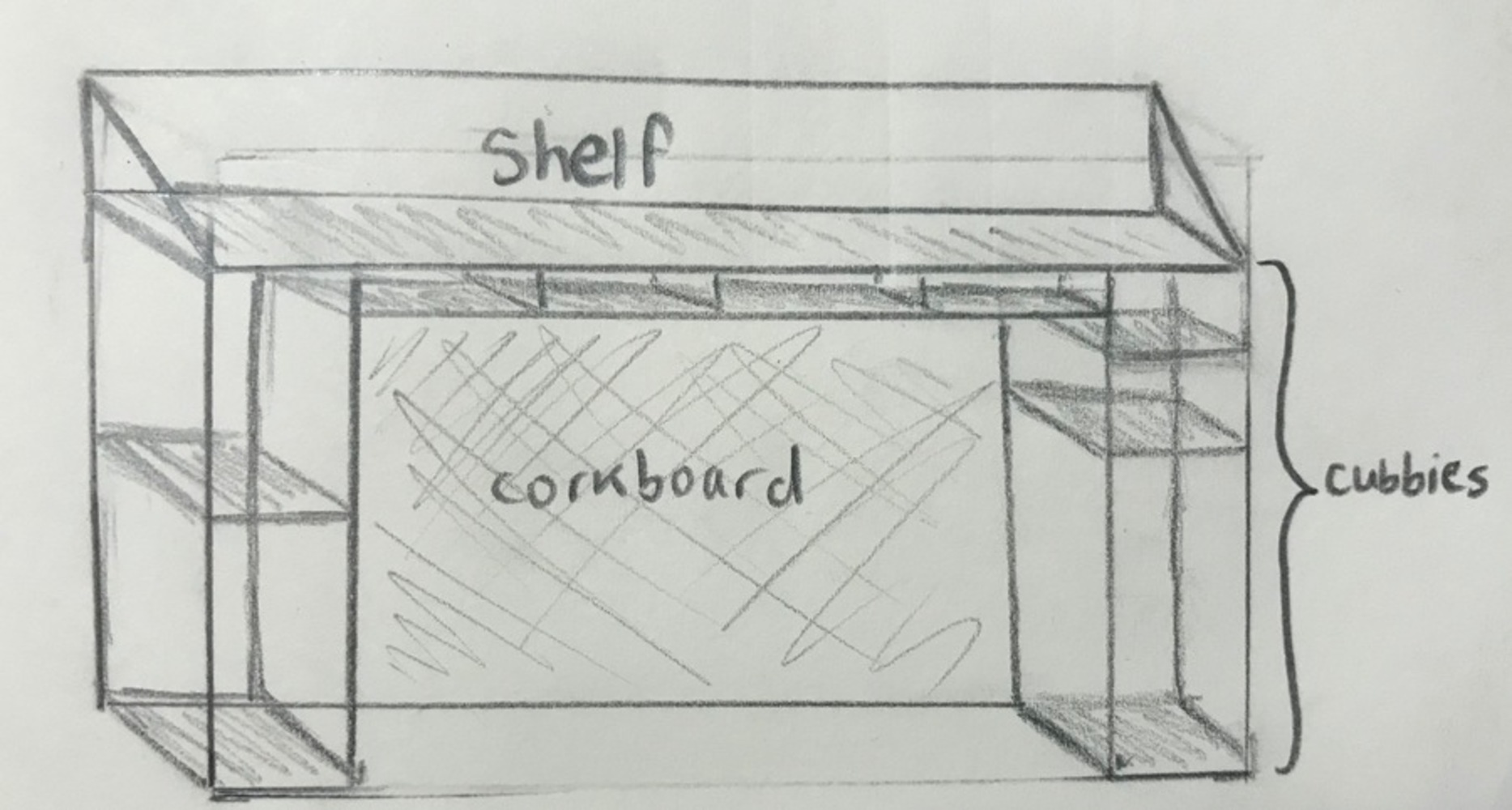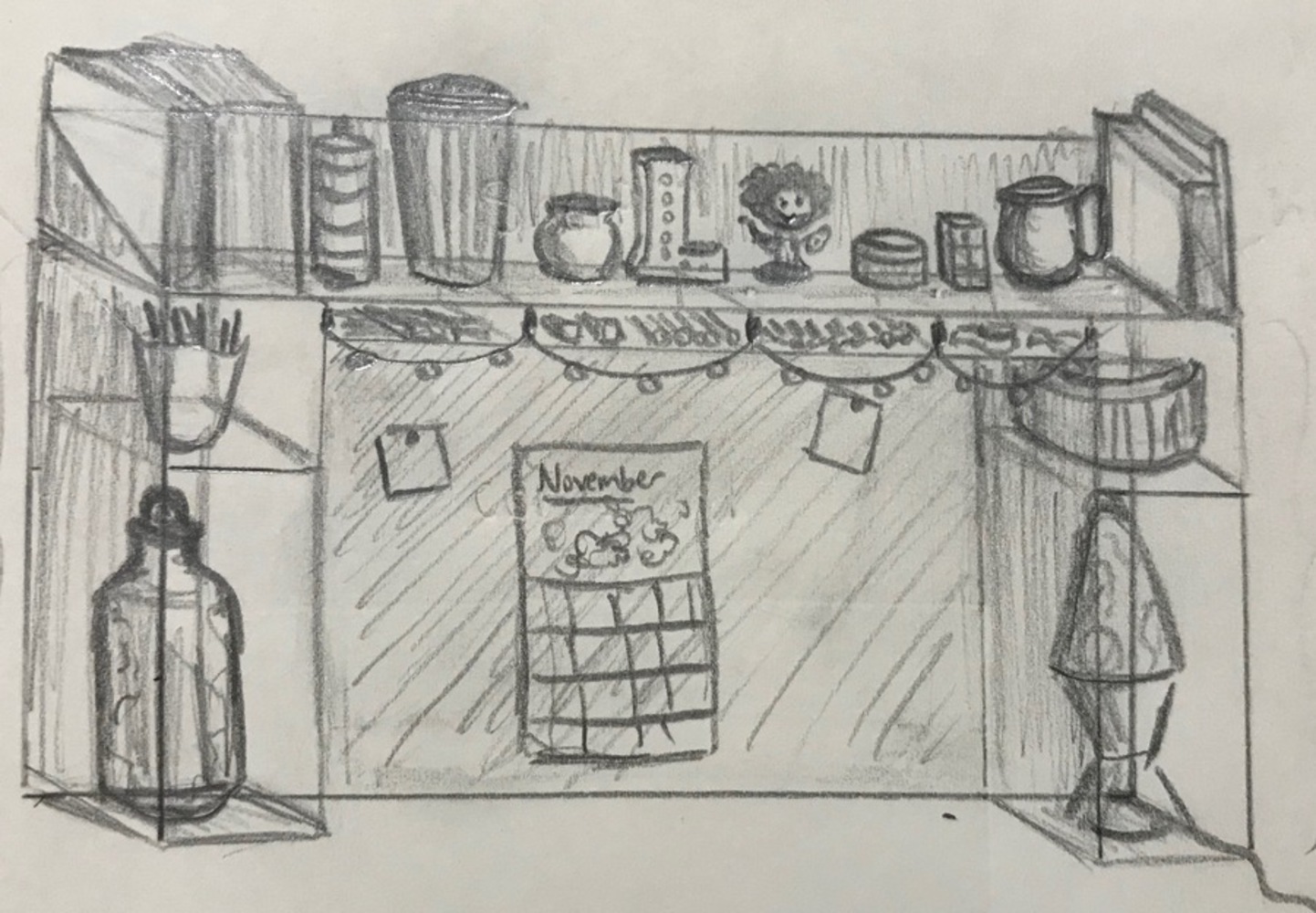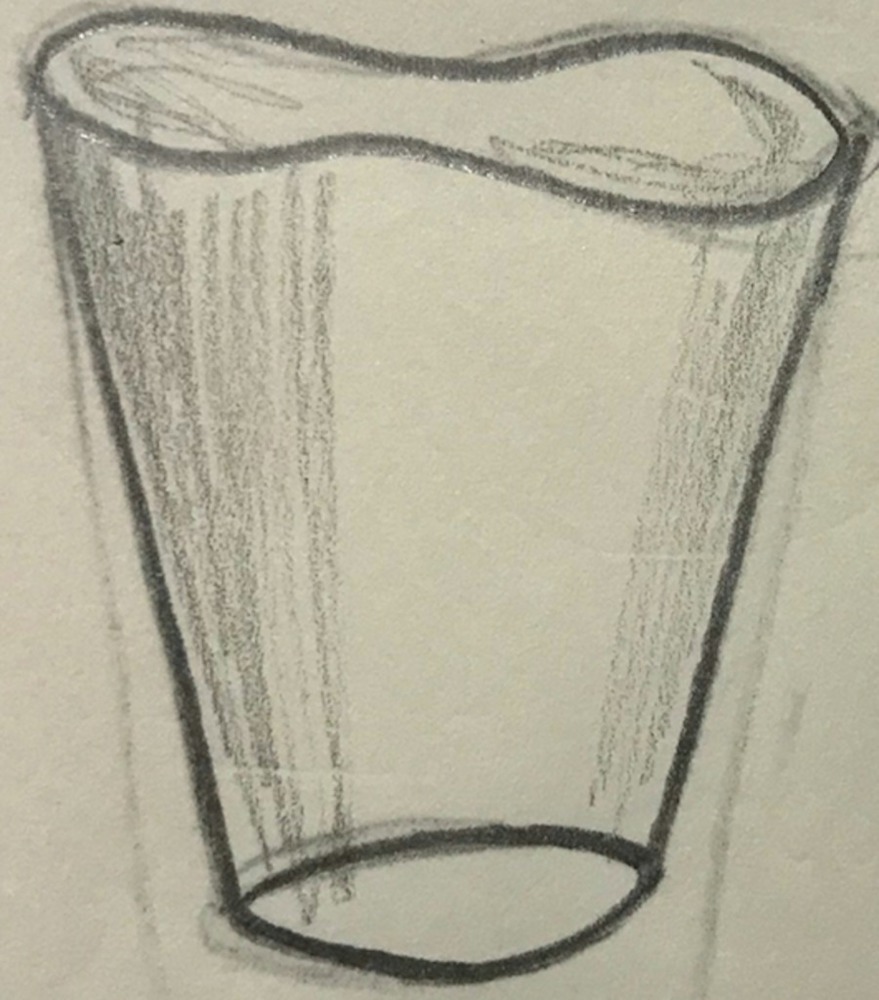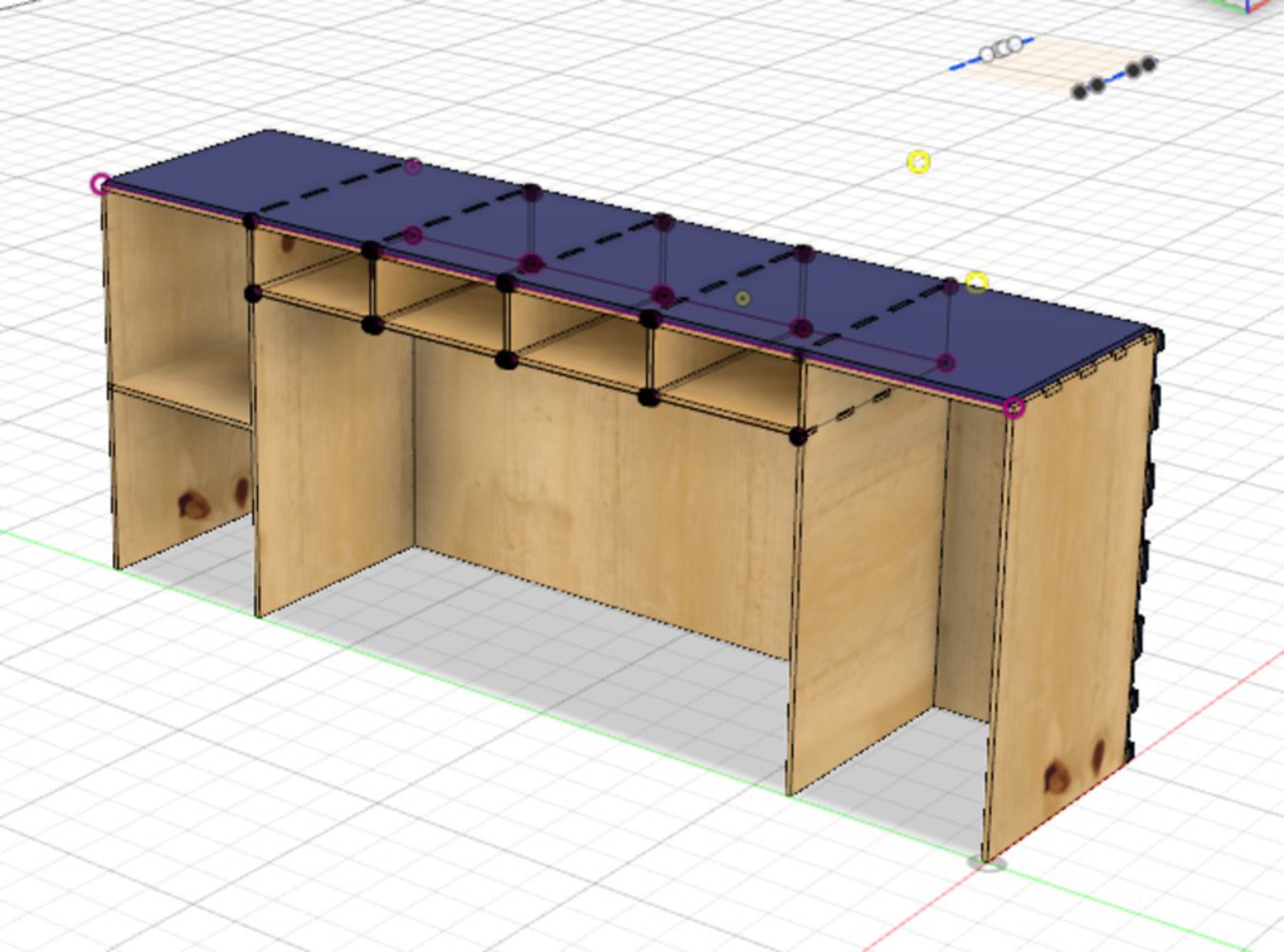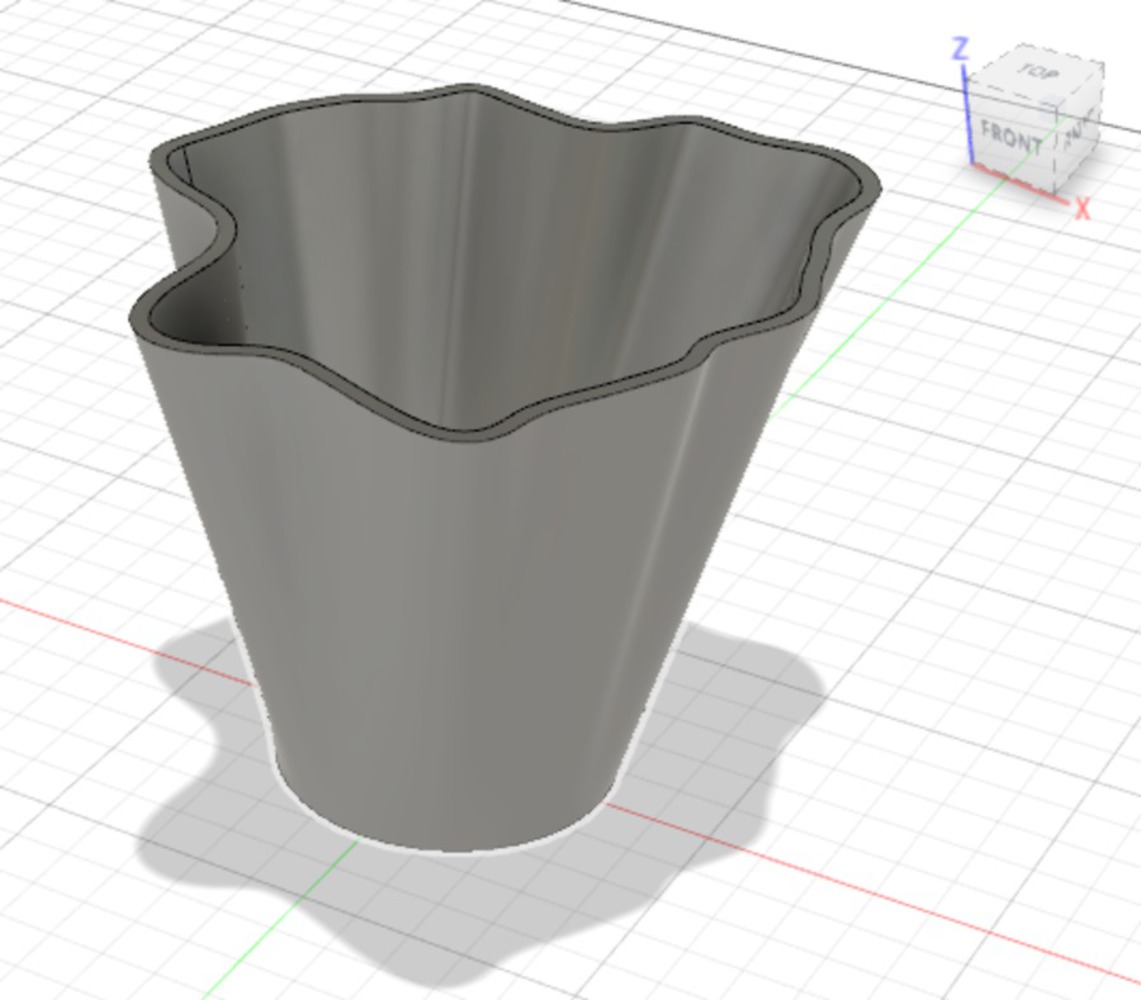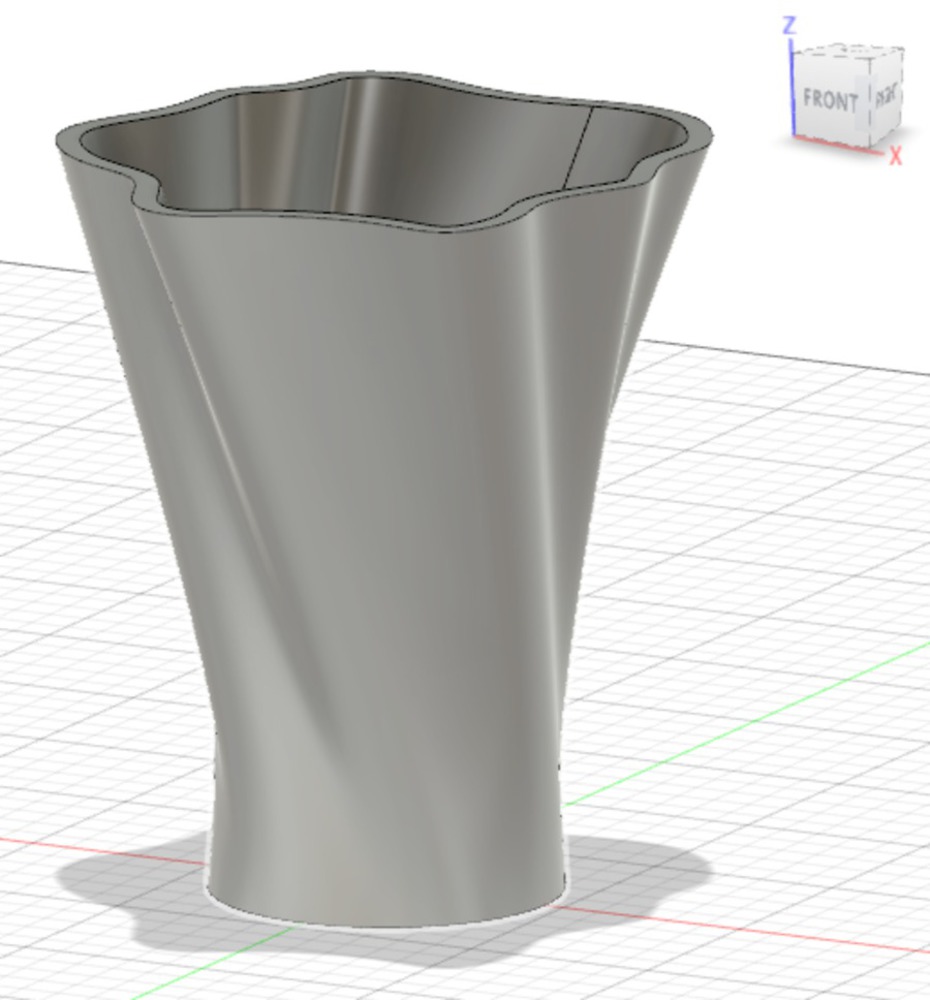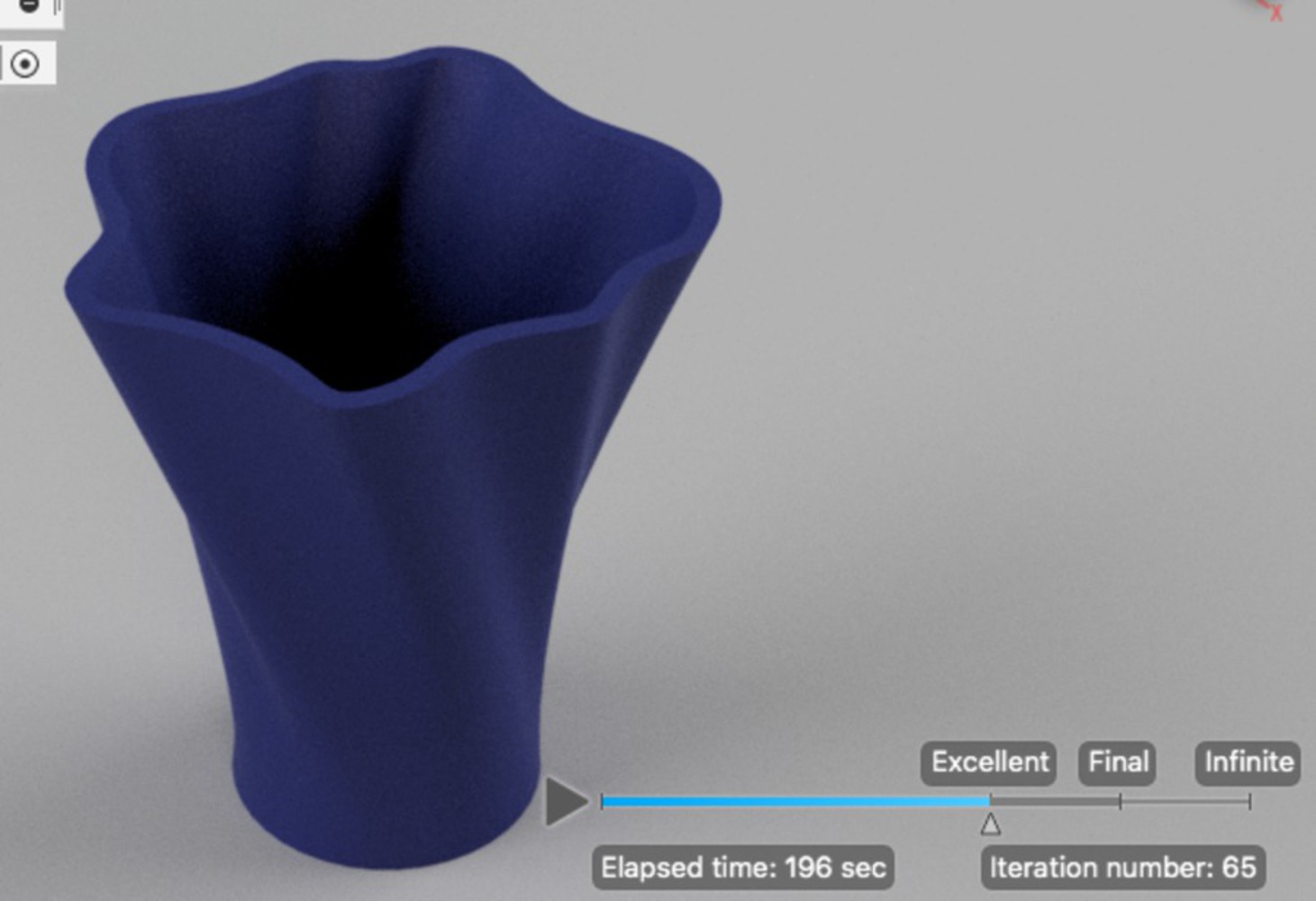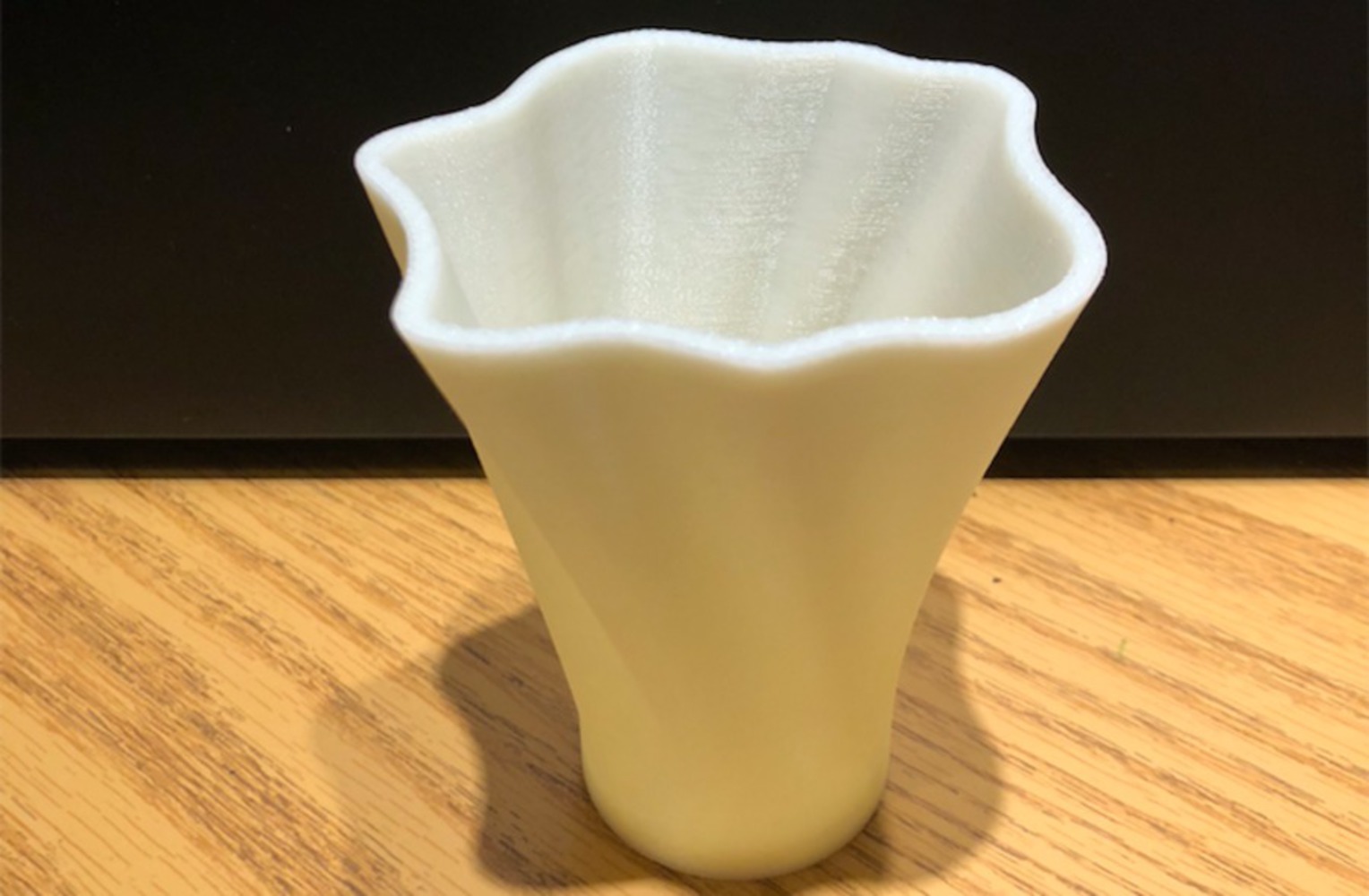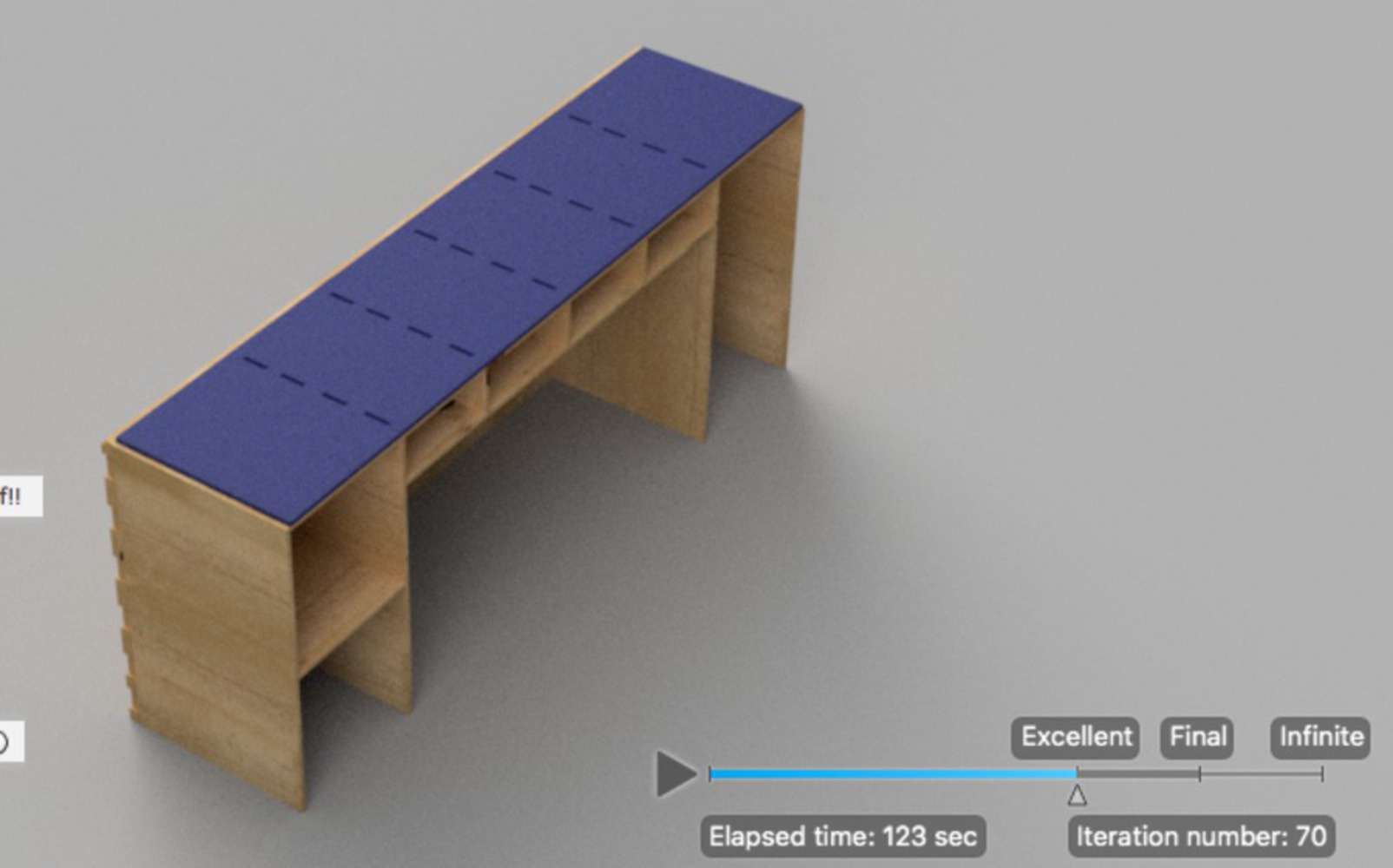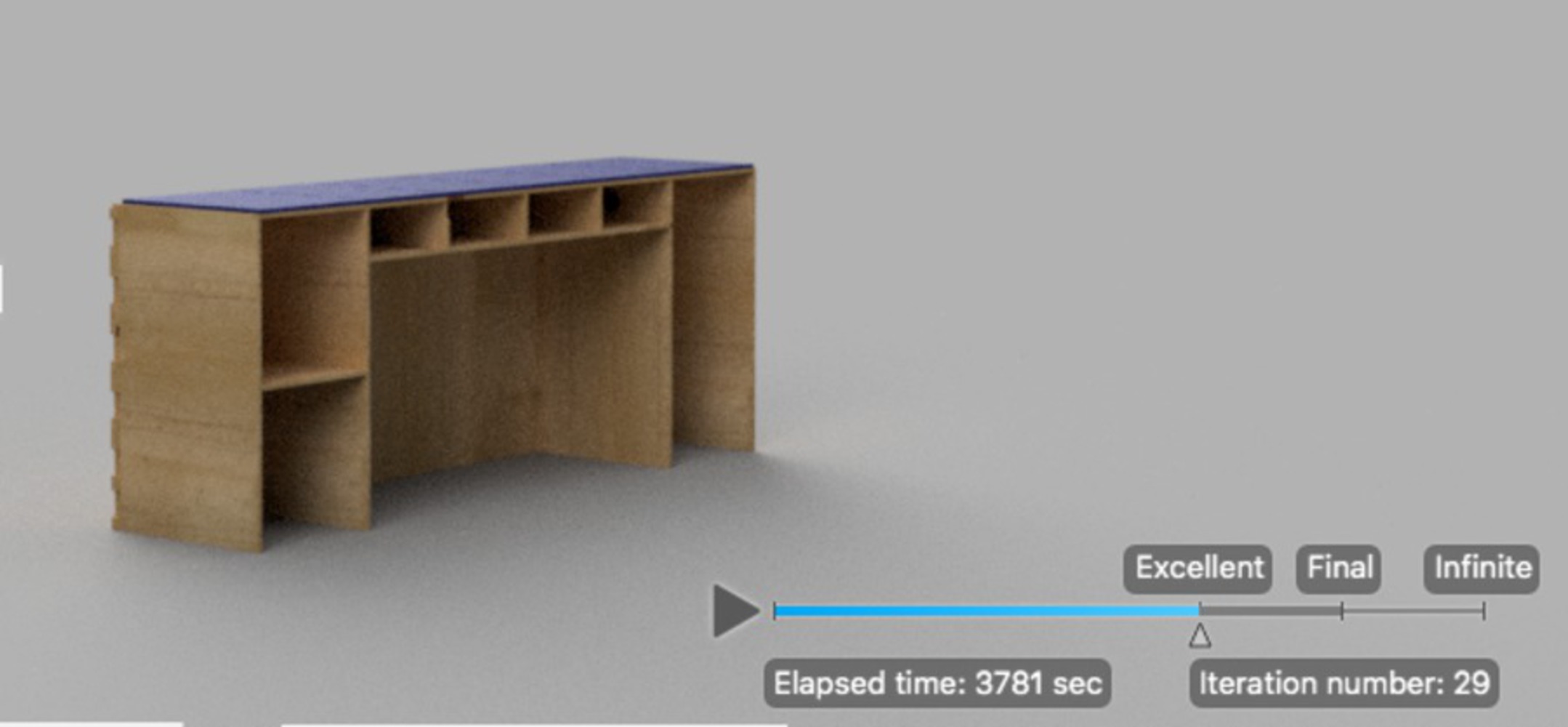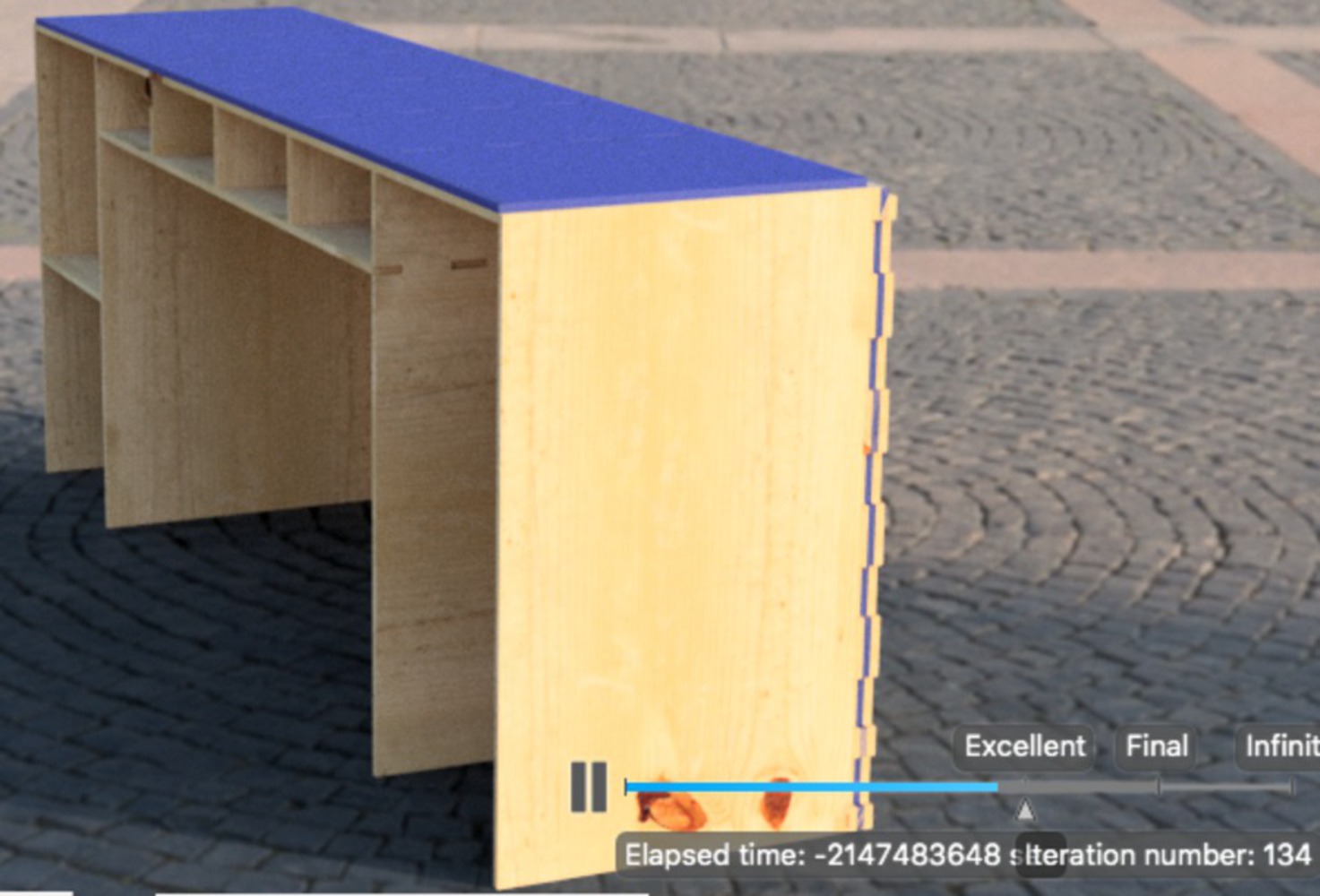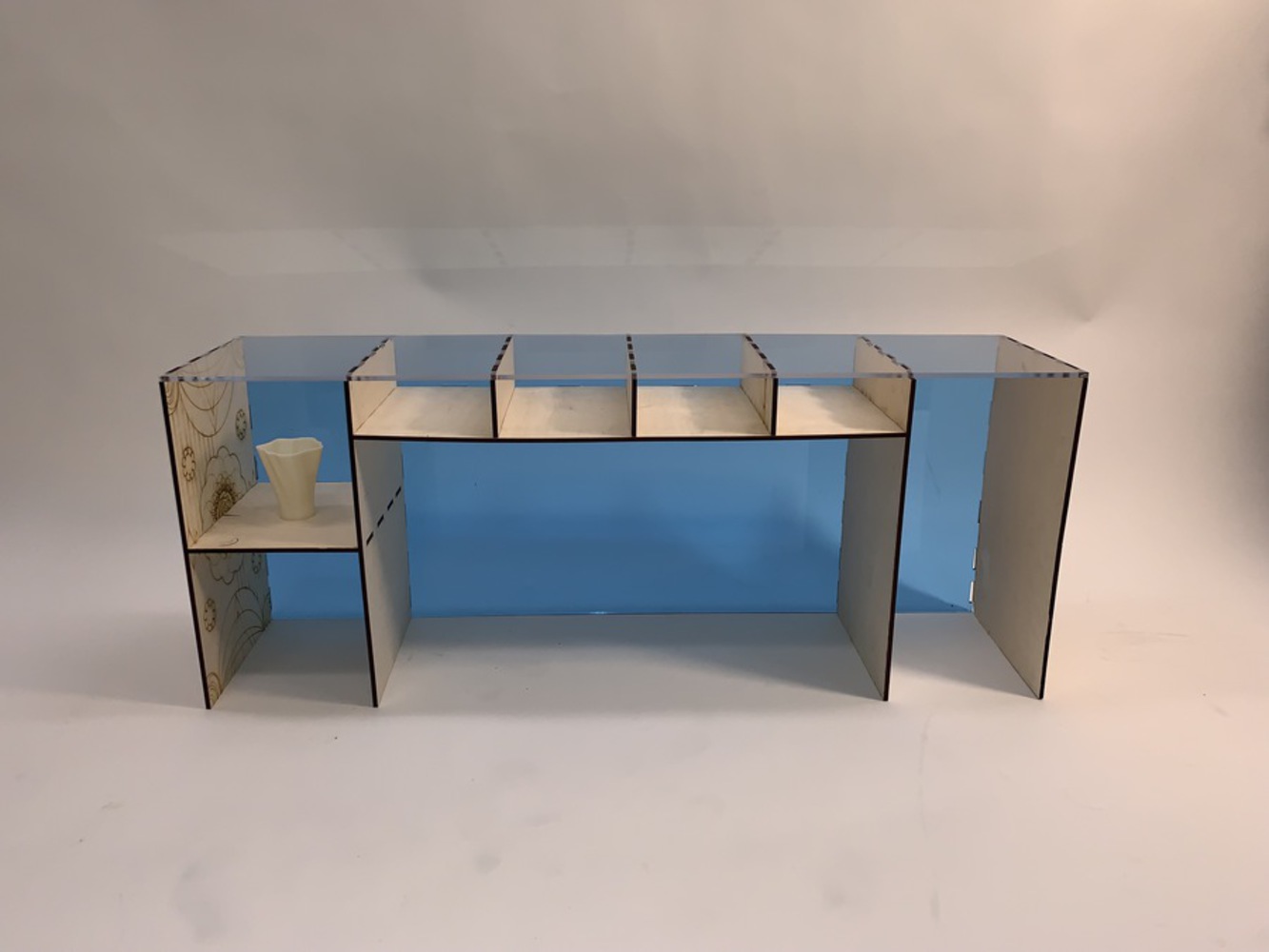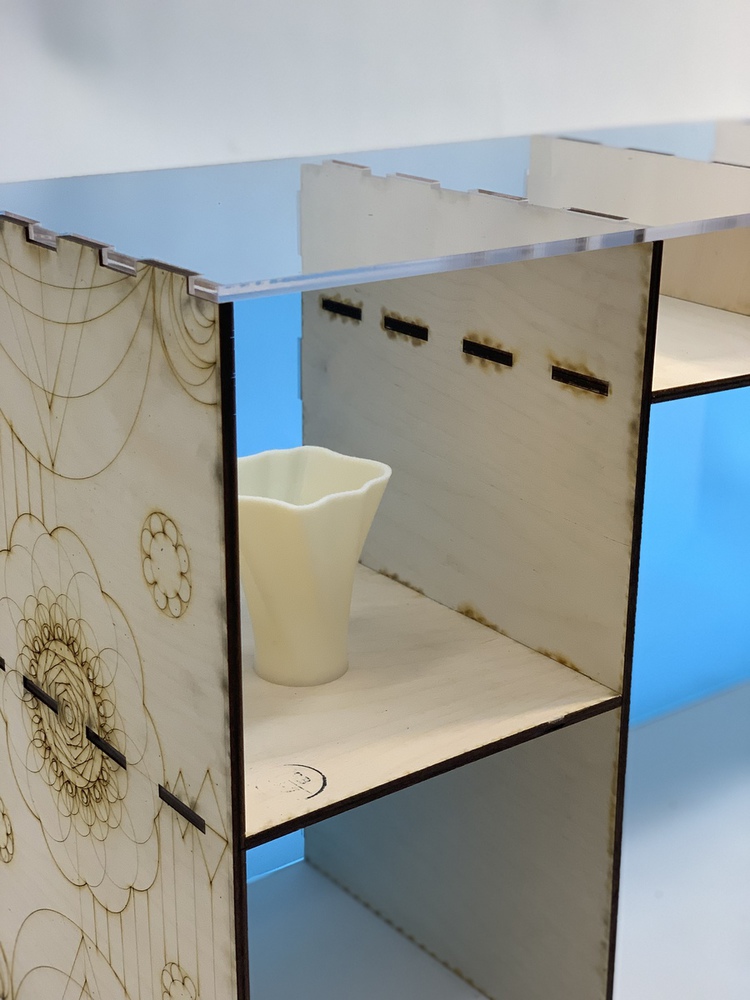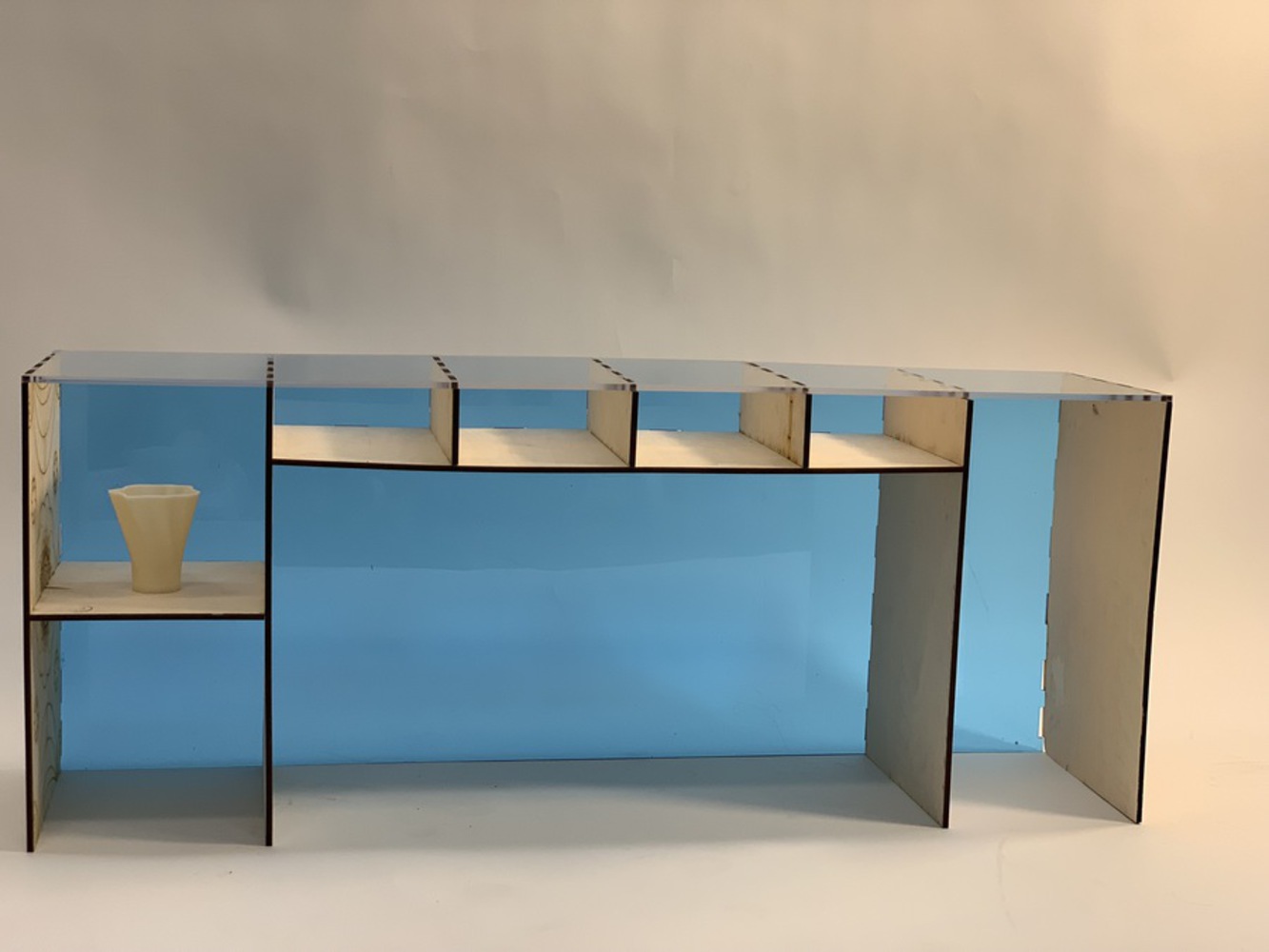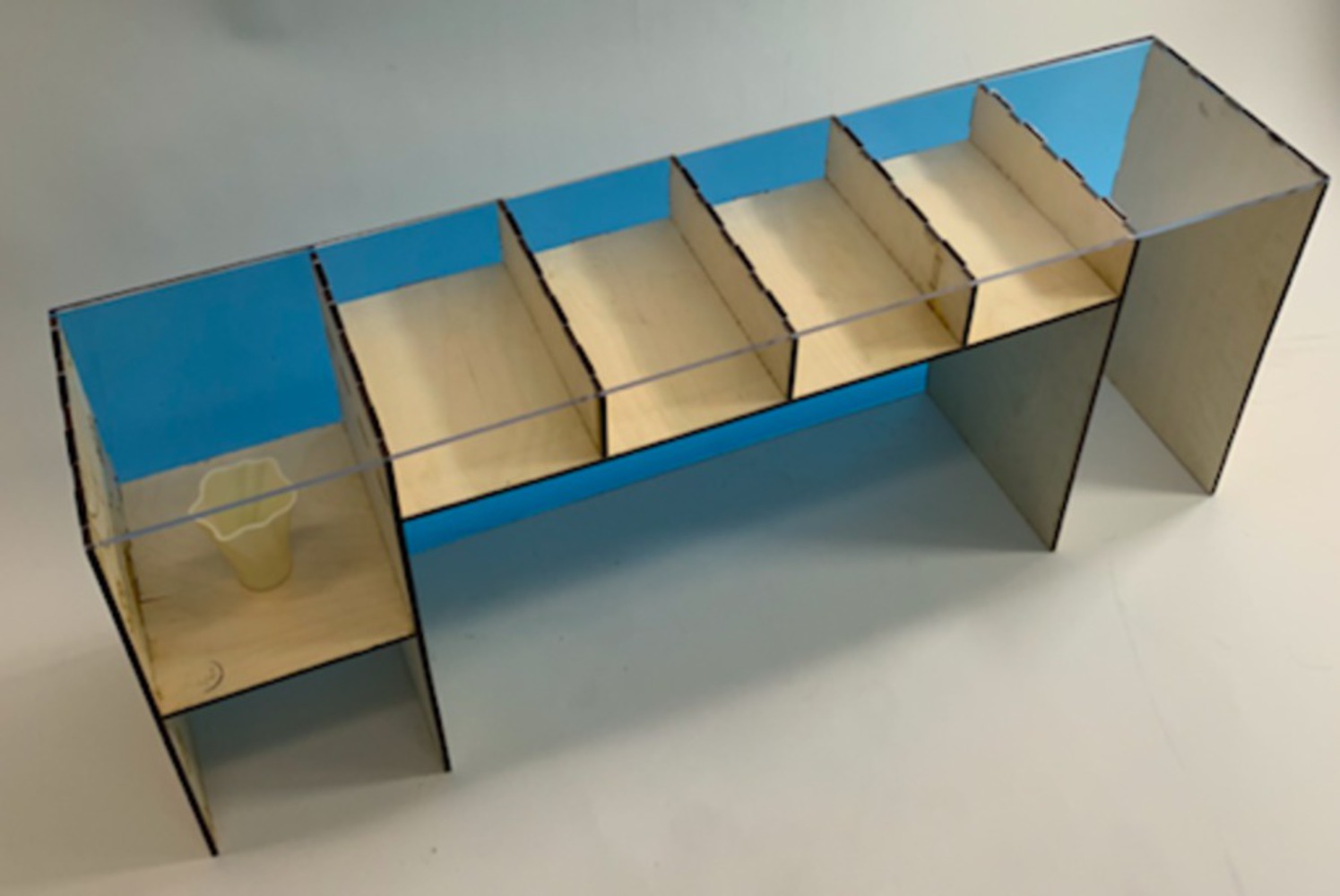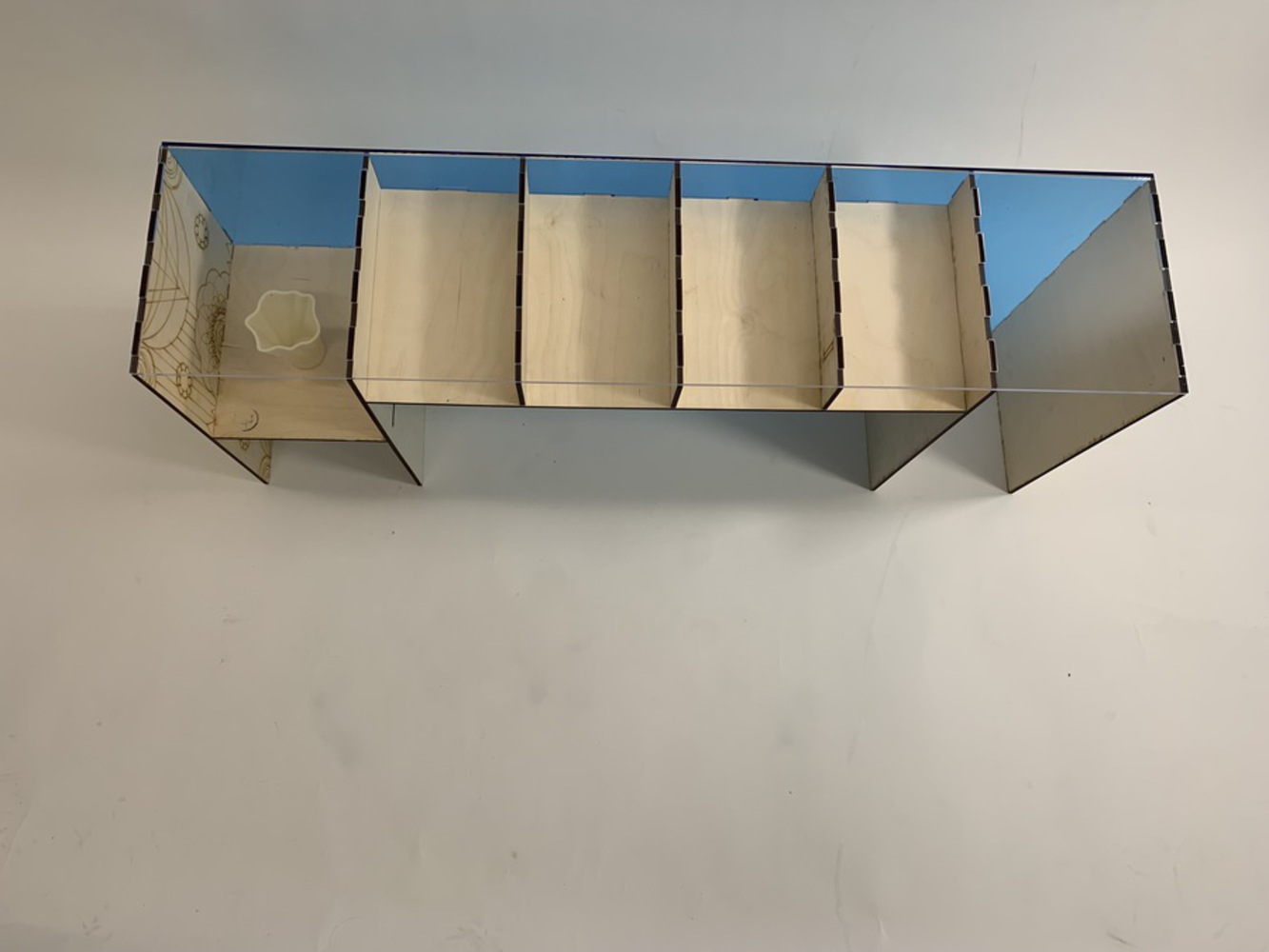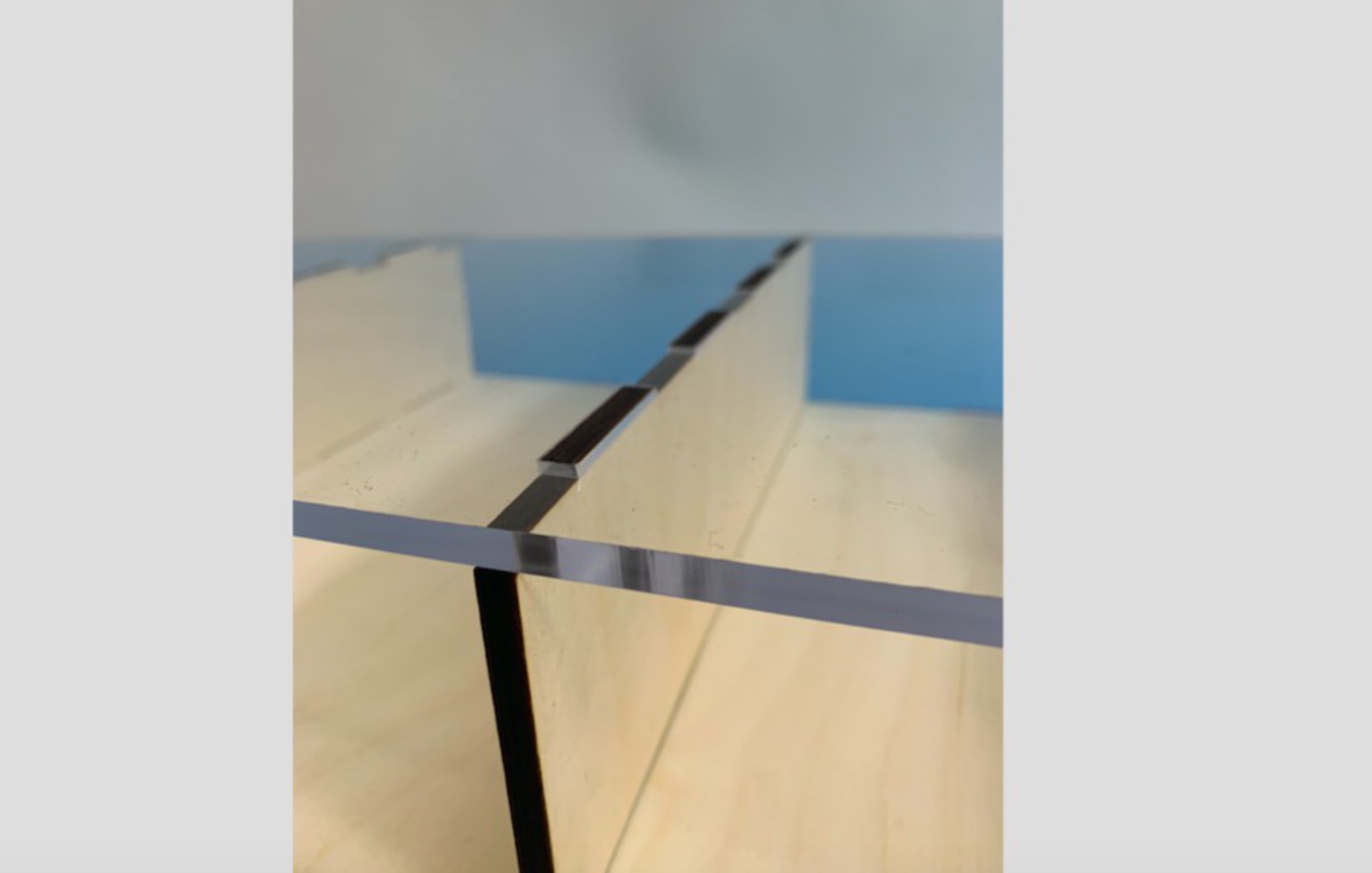Intention
When deciding what to make for this project, it was clear to me that the primary issue I have in my day-to-day life is organization. Looking at my perpetually-messy desk, I decided that a shelf designed exactly to fit the dimensions and storage needs of my desk would be an incredibly useful tool in becoming more organized.
Research+Context
Throughout my design planning process I kept in mind Martin Heidegger’s definition of “things”, Walter Benjamin’s definition of “authenticity”, and Aaron D. Kochel’s definition of “participatory culture”. I made sure that my project would fulfill a practical, useful purpose in order to be characterized as a "thing" rather than merely an aesthetic but functionless object. I also kept in mind the concept of authenticity to guide my shelf design, ensuring that the layout of the shelf, the engravings of the faces, and the form of the pencil holder all helped to create a unique aesthetic for my project and serve a purpose that was specific to me and could therefore be characterized as authentic. Lastly, I wanted to make sure that my project was something that other people could interact with and benefit from. By making a desk shelf, I hope to improve the overall neatness and appearance of my dorm room in a way that will benefit my roommate and anyone else who comes into the room. These are concepts thatI kept in mind as I went through the process of planning, modelling, cutting, printing, and finally constructing my final project.
Aesthetic Inspiration
My inspiration for this project came largely from the peer interviews we had in class, which helped me to pinpoint a problem I have in daily life and formulate a holder that might remedy it. I also drew inspiration from a friend's desk shelf and how much it helped her to clear up her desk, and how much it contributed to her room's aesthetic. I decided that even though I could buy a shelf for my desk, the only way to tailor it to suit my personal needs in structure and appearance would be to make it myself.
Sketches
Initially, I wanted to create a shelf entirely out of wood with a small bookshelf space on top and 9 cubby spaces, and a layer of cork on the front of the back panel that I could use to hang pictures. I created sketches to visualize what the shelf itself would look like and additionally what it would look like in the context of my room, with the contents of my desktop space arranged across it. I also created a sketch of a pencil holder I wanted to 3D print to enhance the organizational capabilities of my shelf while also complementing it in appearance.
